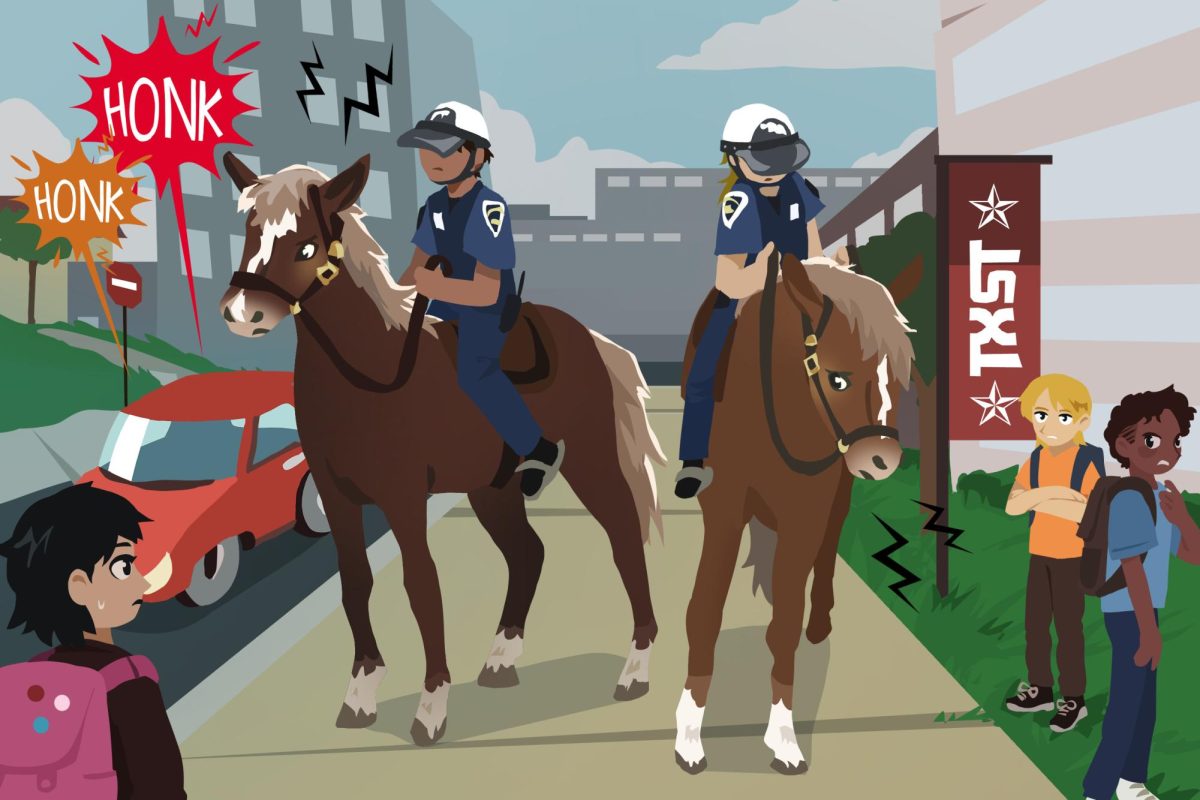Regardless of a Texas State student’s major, it is likely they will have to take at least two life sciences courses before she, he or they can get a degree. However, a quick Google or Twitter search provides many a thread started by students desperate for an easy A in science, something they either fear, hate or just do not want to deal with.
Of course, an ‘easy A’ is much easier when students are actually interested in the topic. Interest is a key part of the learning process and increases a student’s motivation, attention and retention of topics. In this era of distance learning, it has become harder for students to find motivation, with a College Reaction/Axios poll taken last April showing that 77% of students surveyed thought their online classes were worse than in-person classes.
YouTube and TikTok are filled with instructional videos about how to skip or feign attention in online classes, how to cheat on assignments in ways that are undetectable by proctoring software and many methods for manufacturing software or hardware problems. Now more than ever, students are bored.
While much has been made of efforts to get young children interested in STEM, most people do not think of non-majors science courses as a last chance to teach young people about science. These are critical steps in making sure students become healthy, productive members of society who can take care of and advocate for themselves.
Some students fight to sign up for the ‘cool’ science credits or the ones they heard were an ‘easy A.’ Those who miss out end up in dry courses, many of which are intended as introductory courses for science majors, like Organismal Biology or General Physics I. If these courses are taught in a way that is meant to ready science majors for new topics ahead, how do they help non-science majors to learn? What use is the lac operon to them if they do not need to know more about genetics?
Students in the Honors College at Texas State get special access to science courses designed with non-majors in mind to stimulate their interest in critical topics or relate science to their majors, like Astronomy in Art, History and Literature. However, students outside of the Honors College do not get these options. It is time for Texas State to ensure that there are interesting, useful credits available to all non-science major students.
Creating new courses — with or without associated labs — that cover critical knowledge for life can engage students in the learning process, ensuring better grades and more retention of information that they can use throughout their lives. Courses about health, especially in a state like Texas, one of the few in the nation to not require health education classes in high school, can help students to make better, well-informed choices about their health and their families’ health.
Courses about applied basic chemistry, which allow students to learn what cleaning products never to mix together or how different cookware can alter the cooking time and even the flavor of foods, could help students to take care of themselves and their households.
Texas State is missing incredible opportunities to start ensuring students are better prepared to use and understand science and avoid misconceptions that can negatively affect their health. This is the university’s last chance to bring scientific literacy to thousands of students — and it cannot afford to miss.
–Toni Mac Crossan is a biology graduate student
The University Star welcomes Letters to the Editor from its readers. All submissions are reviewed and considered by the Editor-in-Chief and Opinion Editor for publication. Not all letters are guaranteed for publication.
Opinion: If science must be mandatory, at least make it fun
March 15, 2021

Blake Wadley
Donate to The University Star
Your donation will support the student journalists of Texas State University. Your contribution will allow us to purchase equipment and cover our annual website hosting costs.
























